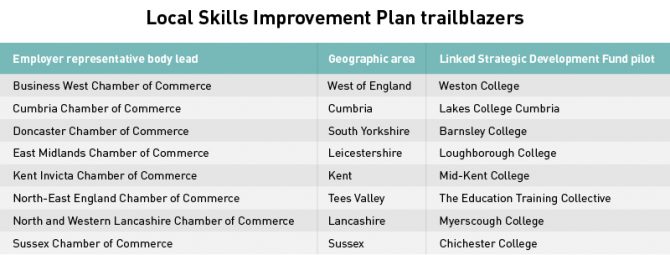The employer representative bodies that will lead pilots for new local skills improvement plans (LSIP) have been named.
Eight different chambers of commerce will spearhead the development of the plans in eight trailblazer areas this year, backed with £4 million of revenue funding.
First mooted in the FE white paper, the plans will aim to make colleges to align the courses they offer to local employers’ needs.
They are hoped to address concerns that employers do not currently have enough influence over the skills provision offered in their locality and struggle to find staff to fill their skills gaps.
The LSIP trailblazers are:

In application guidance published in April, the Department for Education said the LSIPs will “set out the key changes needed to make technical skills training more responsive to employers’ skills needs within a local area”.
They should be created in collaboration with colleges and training providers, with employers “setting out a credible and evidence-based assessment of their skills needs, to which providers will be empowered to respond”.
“The plans will help ensure provision is more responsive to emerging and changing skills needs and being locally driven, can be tailored to the challenges and opportunities most relevant to the area,” the guidance added.
















Your thoughts